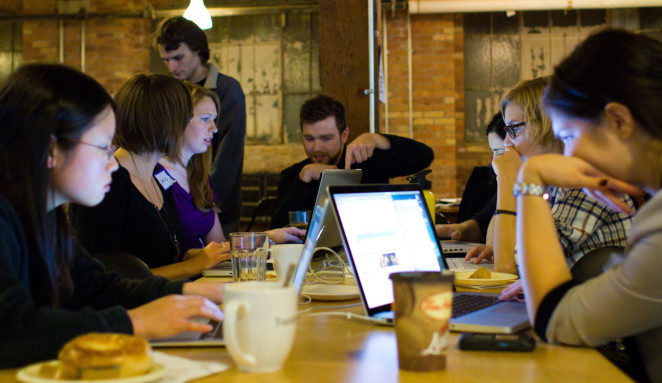Defeating hate speech online

Louis Reynolds, Project Coordinator at ISD, argues that online spaces have become central to how young people explore new ideas, express their identity, and participate in wider society. At the same time, these spaces can also be used by those who seek to undermine social cohesion in the UK and manipulate young people.
Just like in the real world, I have seen first-hand how social media can also be exploited by extremist groups and those who spread hateful worldviews to distribute their narratives and recruit supporters to their cause. Yet to date, efforts to provide effective digital citizenship education to young people in the UK to address this challenge have fallen short.
Much focus has placed on developing new ways to block or remove hate speech and extremist propaganda from social media platforms. Yet these important efforts can never be the whole solution – the volume of content and the complexity of controlling its distribution on the internet means that young people will always be exposed to it in some way, somewhere.
Rather than solely focusing efforts to stop young people coming into contact with these views, we need to give them the critical thinking and media literacy skills to see through them. We also need to give young people the digital citizenship skills to look out for each other online, and to know what to do when confronted with hateful, abusive or illegal content.
Recently the Lords’ select committee on Communications published “Growing up with the internet”, which called for digital literacy to sit alongside reading, writing and mathematics as the fourth pillar of a child’s education. This was recommended in order to ensure “no child should leave school without a well-rounded understanding of the digital world”.
There is far more that needs to be done in the classroom to give young people the skills and knowledge they need to build resilience to hate and extremism, through educational exercises and open discussion, and this is something that ISD is working to address. Yet there are also many other ways to address these issues outside of the classroom, focusing on where these skills are most needed.
We have recently announced the launch of ‘Internet Citizens’, a partnership with Google, UK Youth and Livity to provide digital resilience training to young people, through a roadshow of workshops delivered in youth clubs across the UK. Our aim is to help them see through propaganda and manipulation, act appropriately in the face of hate speech and illegal content, and make a positive contribution to their social media networks.
Our role has been to develop the curriculum, content and format for the workshops, making sure that we focus on the right skills and have a concrete impact. We learnt early on in our pilot sessions how hungry young people are to discuss these issues and learn how best to address them.
Our workshops cover issues like fake news and emotional manipulation, black and white rhetoric, echo chambers and how to deal with hate speech online. We seek not only to inform participants about these issues and why they matter, but motivate and equip them to look after each other online and spread their own positive messages. Ultimately, we want to empower participants with the skills they need to thrive as proactive, powerful citizens in the 21st century.
Young people are digital natives, more at home with digital technology than any previous generation and growing up in a world where social media is the principle venue for social, political and cultural discovery and debate. But it is a terrible mistake to think that this means they do not need guidance, or to be actively taught the skills they need to be critical consumers of information and capable citizens online. This project represents an important step towards addressing this need.
Ultimately, the great questions of our time – how to promote tolerance and undermine hatred, how to build a more cohesive society, how to defeat extremism – will be answered in the minds of young people. The conclusions they come to will be determined online and offline by the content they consume and the arguments that persuade them online. Given this reality, furnishing young people with the skills they need to make the right choices and build a better internet isn’t just important, but urgent.
The views expressed in this blog post are those of the author and do not necessarily reflect the views of the organisation.
